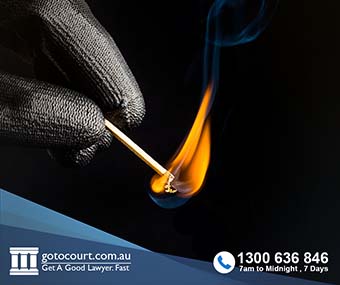Voir Dires in Tasmania
A voir dire is a “trial within a trial”. This is a hearing where a judge determines what evidence should be admitted or excluded during an actual trial. It is held before a hearing at the Magistrates Court, or prior to a jury trial in the District or Supreme Court. The process of voir dire allows for a review of the legality of the police investigation and the reliability of the resulting evidence. In many cases, successfully excluding a piece of evidence can mean the difference between a guilty verdict and an acquittal. This article explains the process of voir dire in Tasmanian courts.
Excluded Evidence
Police officers gather a range of evidence when they investigate a crime. This evidence can be found from a variety of sources, such as during searches of the suspect or their home, interviews with the suspect or witnesses, or through CCTV footage. Several Tasmanian laws, including the Criminal Code Act 1924 and Police Offences Act 1935, establish the legal requirements for police searches and investigations. For instance, the general rules for admissibility of evidence are listed in s361A(1) of the Criminal Code. The court may exclude the evidence during voir dire if the police fail to conduct these procedures as set out in legislation.
Voir Dire
In Tasmanian courts, a voir dire is held before a judge or magistrate. In a jury trial, the jury is never present as they could be exposed to evidence that might not be legally presented during the trial. It would be difficult for a juror to ignore evidence after they had heard it in court, even if they were directed by a judge to exclude the evidence from consideration.
The court may consider during a voir dire any question of procedure or law that has already arisen or is likely to arise during the trial. The purpose of this hearing is to clear up any matters to ensure the trial is conducted expeditiously and fairly. The judge can also determine during this preliminary hearing any question of fact that may legally be decided without a jury. Should the jury fail to reach a judgment (or the trial is discontinued), the outcomes of a voir dire will still apply to any subsequent trial.
Not every case has a voir dire proceeding. The court grants a voir dire upon request, chiefly when the defence wants to exclude evidence from the proceeding. The court will only hold this hearing when the defence presents a compelling question as to the admissibility of prima facie admissible evidence.
The Evidence Act 2001 states that a voir dire is heard to determine whether:
- As an exercise of discretion or not, the judge should admit the evidence;
- The evidence can be used against a person in court; or
- A witness is compellable and competent.
Process for Voir Dires in Tasmania
The Supreme Court of Tasmania established in R v Turner (No 12) [2001] that a court has authority to direct one party to present their evidence first in a voir dire. In practice, however, the defence is rarely called on to present their evidence first. During a voir dire, the burden of proof is on the party asserting the fact. The standard of proof during this proceeding is on the balance of probabilities. The court may take into account any matter when considering whether to admit evidence, including the danger of unfair prejudice or problems with how the evidence was obtained.
Unfair Prejudice
The defence can argue that the danger of unfair prejudice outweighs the probative value of the evidence. There is a danger that some evidence is so inflammatory that the jury will give the evidence more weight than it deserves, or the nature of the evidence may unfairly prejudice the jury against the accused (see, for instance, KMJ V Tasmania (2011)). Prosecutors typically argue that it is sufficient for a judge to instruct the jury not to be unfairly prejudicial. Defence counsel usually argues that the jury is unlikely to be able to follow this direction and that justice requires the exclusion of unduly prejudicial evidence.
Illegally Or Improperly Obtained Evidence
Tasmanian courts shall not admit evidence that was obtained improperly or in contravention of law. The burden is on the defence to prove impropriety or breach of law on the balance of probabilities. For instance, if the police found evidence in a house search that was outside the scope of the warrant, then the evidence was not legally obtained. The court decides whether the evidence is admissible (R v Brown [2014]).
Tendency And Coincidence Evidence
This objection is particularly common during sexual offence cases involving multiple complainants. The defence typically argues that evidence from more than one complainant is not cross-admissible. Additionally, the defence can deny that it is not coincidence or tendency evidence, or that it has insufficient probative value to outweigh the prejudicial effect on the defendant. Tendency or coincidence evidence has significant probative value if it is important or of consequence (see, for instance, L v Tasmania (2006)). The more particular the similarities between instances, the more likely the court is to find that the evidence has probative value.
Freshness of Evidence
Questions about the freshness of memory are sometimes addressed during voir dire, particularly in regard to recent complaint evidence in sexual offence cases.
Admissions
A judge may decide to exclude evidence of an admission if it would be unfair to the defendant to use the evidence in all the circumstances. For instance, the defence will typically seek a voir dire when a defendant has made an involuntary admission during an interview with the police. The court may rule an interview inadmissible if the police coerced the suspect, failed to caution, or violated the suspect’s right to silence.
Defence counsel should seriously consider the likelihood of success before asking for a voir dire hearing. It may be preferable for the defence to concentrate on demonstrating the weakness of the prosecution case rather than depending on excluding the evidence through inadmissibility. The criminal lawyers at Go To Court can answer any questions you have about voir dires in Tasmania. Please call 1300 636 846 or use this online form to contact our offices to discuss this or any other legal matter.







